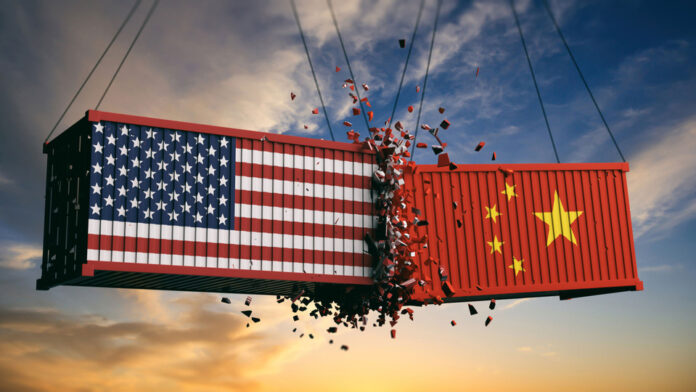China announced it will impose 84% tariffs on U.S. goods starting Thursday, significantly higher than the 34% rate previously disclosed, according to its finance ministry.
The move is the latest escalation in a global trade war sparked by U.S. President Donald Trump, whose administration earlier imposed sweeping tariffs, including a 104% duty on Chinese imports. Other countries, including the European Union, are preparing retaliatory measures as global trade tensions continue to intensify.
Trump’s tariffs, aimed at addressing longstanding U.S. trade deficits, have disrupted decades of established global trade norms, raising recession fears and eroding trillions of dollars in stock market value. On Wednesday, global markets came under severe pressure as Trump’s tariffs against China took effect, triggering a sharp selloff in U.S. bonds and heightening concerns about an exodus of foreign investment from U.S. assets.
Commenting on China’s response, U.S. Treasury Secretary Scott Bessent described Beijing’s move as unfortunate, arguing that China’s economy remains heavily imbalanced and that the escalation would ultimately hurt China more. Financial markets have been rocked by the developments, with major U.S. bank stocks falling in pre-market trading and oil prices plunging to four-year lows.
In a statement to the World Trade Organization, China criticized the U.S. tariffs, warning they could further destabilize global trade. China’s yuan also came under pressure, hitting record lows offshore, though sources indicated that China’s central bank had asked major state-owned banks to limit dollar purchases to curb sharp declines in the currency.
The market impact has been severe. Since Trump first introduced the tariffs on April 2, the S&P 500 has posted its deepest losses since its inception in the 1950s and is now approaching bear market territory.
U.S. Treasuries, traditionally seen as safe assets, have also suffered heavy losses, while the dollar weakened against major currencies. European shares dropped, and U.S. stock futures pointed to further losses after a turbulent session in Asia.
Trump has downplayed the market turmoil, sending mixed messages on the permanence of the tariffs. While suggesting they could be a long-term fixture, he has also indicated that they are encouraging other countries to seek negotiations.
Meanwhile, the European Union is preparing its first round of retaliatory tariffs against the United States, with measures targeting U.S. imports such as motorcycles, poultry, fruit, wood, clothing, and dental floss, expected to take effect in stages.




